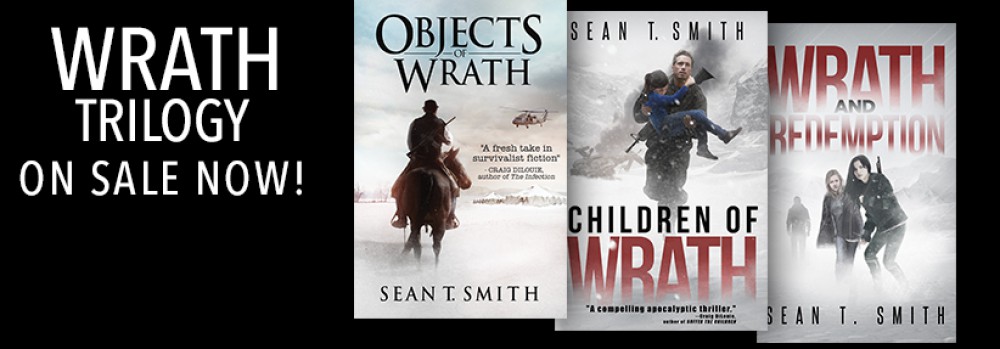When the world is smashed and burning, I believe people will question why God abandoned us, while many who are not religious will turn to religion as a way of coping with the pain and destruction around us. Two of my favorite Post-Apocalyptic novels deal directly with faith: The Stand, by Stephen King, and A Canticle For Leibowitz, written by Walter M. Miller. These novels both had a direct influence on my writing.
I’ve had a few reviewers attack the religious elements of my work, although the overwhelming majority of readers, both religious and agnostic, are not troubled by the way .the characters respond to the end of the world as we know it. While I wrote these novels from a Christian perspective, the books are by no means intended to be an extended sermon. Man has an innate need to connect to our creator, to find a way to explain our existence. Indeed, the idea of the apocalypse itself appears in Roman and Greek myths. The stories of the Biblical Flood and Armageddon go back thousands of years, and are a part of our collective human psyche.
There is a reluctance now, it seems, for post-apocalyptic fiction to address religion. I wonder why that is? Are authors fearful of alienating readers? (This was certainly very much on my mind when I wrote Objects of Wrath.) Whether it’s zombies, a virus, an asteroid, or a war, the majority of PA novels delve into the questions of faith in a cursory manner. I’m not implying there is anything wrong with this approach, and certainly many survivors would not ask larger questions, being more concerned with finding food or fleeing the approaching hoarde.
When I read a novel or watch a movie, one of the things that keeps me interested are the questions, “what would I do? How would I react? How would that feel?” Whether it’s watching an epic battle from Braveheart and putting myself into the shoes of the men waiting for a thundering charge from heavy cavalry or reading the heart-wrenching scenes in The Road, where the father tells his son how to shoot himself. I contemplate the emotional impact, try to see and feel what the characters would be going through. In Saving Private Ryan, when the soldiers are coming toward the beach, rounds zipping through the water, bombs falling, what would that feel like, to have been one of those men? What would I do?
I’m certain that I’d pray. I’d question my faith, but I’d be simultaneously clinging to it. I think that’s how most people would behave. There are atheists in foxholes, but not many.
One of the things about post-apocalyptic fiction which appeals to me is that it offers an unflinching examination of the human condition, a window into our essential being. When laws have disappeared and civilization is absent, what sort of people are we? Philosophers like Locke, Rousseau and Hobbs talk about our “state of nature” before the social contract. I love books that take a look at this question. It’s one of the reasons I enjoy The Walking Dead. While some novels offer a very dark outlook on humanity, in which most men are truly evil by nature, others are more hopeful. I think most people are decent and good, although evil is hungry and seductive. Can good defeat evil, even when it looks as though darkness has already won?
Religion can be a force for good or great evil. In my second novel, Children of Wrath, this is the central theme. Faith in and of itself is not always a good thing. There are atrocities being committed around the world even as I write, killing carried out in the name of religion. Whether or not one believes in any sort of God, there is no denying the way that religion has shaped our world. After the world as we know it ceases to be, people will still turn to the heavens, sometimes shaking their fists, other times begging for help.



Sean,
I really appreciate your take on this. I delve into matters of faith in my series as well (The Fall, Dave McIntyre). I think Christian writers are intimidated to attempt PA fiction that does not follow or relate to a general outline of biblical prophecy. I find it is a great place to strip away the hubris surrounding the characters and reduce them to their basic motivations and reveal their true identity.
I was asked recently how my story fits into the outline of biblical prophecy. I said, “It doesn’t, its fiction.” The series isn’t so much about how the world ended but about the people in the mess and how they deal with it and each other. Faith is a huge motivator in a survival situation and morality matters. As a wilderness survival instructor, I know that if you don’t rise to your best, you may die. I wanted to show that dynamic in action and chose a PA world as the canvas.
Thanks for your kind words, Dave. We can’t please everyone, and in the end there is no use in trying. All we can do is write true.